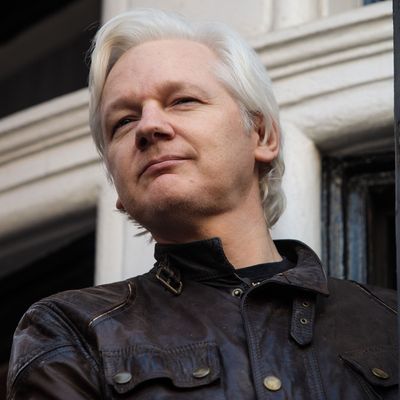
A British high court ruled on Friday that Julian Assange may be extradited from the U.K. to the U.S. to stand trial on espionage charges related to his work as the leader of WikiLeaks. Assange’s legal team has fought the request on the grounds that prison conditions in America would endanger his mental health.
Assange’s partner Stella Morris said he plans to appeal the decision to the British Supreme Court, a process that could take months. If he is turned down, Assange could ask for a stay of extradition from the European high court, though the Washington Post notes that this is a “substantial legal hurdle.” In January, a British judge had ruled that Assange was too much of a suicide risk to be extradited, but the U.S. government appealed.
Assange is a polarizing figure within the media world. He was at first mostly respected for airing U.S. secrets, then widely denounced for publishing Russian-sourced emails damaging to Hillary Clinton during the 2016 election. As part of a crackdown on leaks during the Trump administration, the Justice Department took the unprecedented step of charging the publisher of such leaks — not their source — when it indicted Assange on 17 counts of violating the Espionage Act of 1917. Those charges stem from his publication of classified military information and diplomatic cables in 2010, which were provided to him by Chelsea Manning. (Yahoo News reported recently that Trump officials had also discussed the possibility of kidnapping Assange from London after he leaked CIA hacking tools in 2017.)
The Biden administration has continued to pursue the charges against Assange. The Obama administration, though highly aggressive in going after leakers, had declined to prosecute him over concern that doing so could set a troublesome precedent. Many journalists have now leapt to Assange’s defense on First Amendment grounds.
The 50-year-old native Australian spent most of the past decade holed up at the Ecuadorian Embassy in London to withstand being sent to Sweden to face multiple sexual-assault charges. In 2019, Ecuador rescinded his asylum and British authorities arrested him. (Sweden also dropped its charges that year.)






























